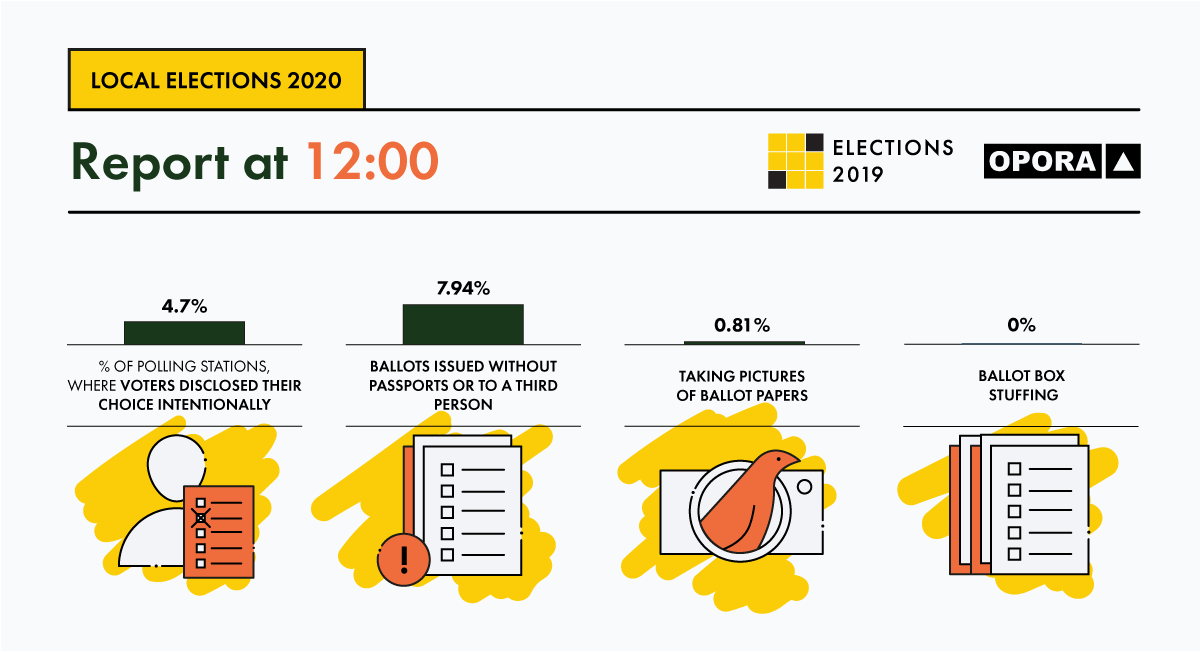OPORA continues to observe the election process and activities of election commissions. As of 12:00, commissions have been properly fulfilling their duty to create conditions for the free vote, but some procedural violations and organizational problems remain a key challenge at this stage of the process.
Civil Network OPORA is observing the voting process and the adherence to election procedures at a nationally representative number of PECs. The margin of error is 3.04%.

The process of issuing ballots in the first hours of the Election Day (from 8:00 AM to noon) took place in line with the law in 92.06% of polling stations. Some violations of the procedure for issuing and receiving ballots were detected at 7.62% of polling stations. More serious incidents were noticed at 0.32% of polling stations. These are attempts to obtain or issue ballots without proper verification of documents or attempting to vote for another person. OPORA calls on voters and election commission members to follow all requirements for ballot issuance. Violation of these requirement is a criminal offense.
OPORA's observers detected voters attempting to demonstrate marked ballots at 4.7% of polling stations, including violations of the law on secret ballot voting. Accordingly, no such incidents were recorded at other polling stations (95.3%).
At amost 1% of polling stations observers noticed cases of voters taking pictures of their ballots (0.81%). These incidents could be related to both personal motives and possible technologies of controlling the vote. For example, organizers of illegal voter bribery technologies can demand to take picture of your ballot.
Since the opening of polling stations and until noon, OPORA's observers have not reported any attempts of ballot box stuffing.
Reference: OPORA has deployed observers to 625 polling stations, located evenly throughout the country. Before the observation, OPORA held 2 rounds of trainings and special Election Day simulations, involving possible situations and incidents. The observers are deployed based on random stratified sampling. The maximum margin of error for this report is below 3.04% percent. OPORA's statistically based observation is an independent activity, realized exclusively by OPORA, aimed to provide independent information on the course of election.
